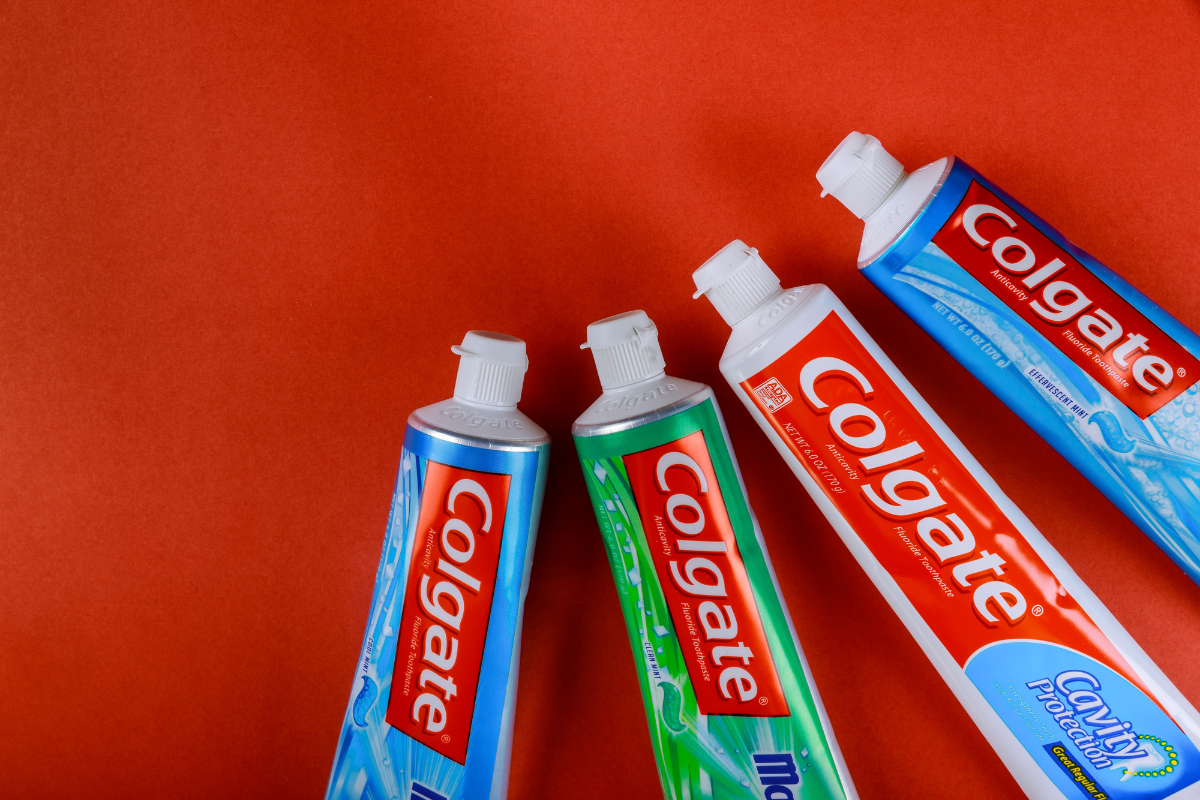
Colgate-Palmolive said several challenges may require work beyond 2025, the target date for many of its sustainability goals. | Ungvar/Shutterstock
As the 2025 sustainability deadlines set by many brands get closer, another global heavyweight has announced that it will likely miss some of its target goals.
In its 2023 sustainability and social impact report, Colgate-Palmolive said several challenges “may require us to go beyond 2025 to achieve our target to make all of our packaging recyclable, reusable or compostable.”
Unilever recently made a similar announcement.
“As we work toward driving impactful change, we are reminded of two fundamental truths: a single company can make a difference in the world, and no company can tackle today’s toughest challenges working alone,” Noel Wallace, president and CEO of Colgate-Palmolive, said in the report.
The company’s 2025 goals are to eliminate one-third of virgin plastics compared to a 2019 baseline and make all packaging recyclable, reusable or compostable; to use at least 25% PCR in packaging; and to eliminate unnecessary and problematic packaging.
In 2023, the company reported that it reduced plastic packaging by 21.4%, used 18.0% PCR, that 89.5% of its packaging is recyclable, reusable or compostable, and less than 1% of its packaging by weight is classed as unnecessary or problematic, using the Consumer Goods Forum’s Golden Design Rules definition.
The report noted that it is working on virgin plastic reduction through lightweighting and re-design as well as using more PCR and alternative materials. The company has eliminated PVC entirely and reduced its usage of PS, certain black color plastics and other problematic components.
“We continue to look for solutions relating to our ‘flexible’ packaging, such as in our Hill’s pet food bags and personal care pouches, which present industry-wide challenges,” the report noted.
The report highlighted a recent report from Stina that found that about 90% of all toothpaste tubes being produced for the U.S. and Canada markets have designs compatible with the color HDPE bottle recycling stream. The tubes have also been the subject of a lawsuit regarding how recyclable they really are.
Wallace said in the report that Colgate-Palmolive was “a pioneer in transforming toothpaste tubes by creating a first-of-its kind recyclable tube and the first to be recognized for meeting the technical requirements for compatibility.”
“What has helped make our innovation a game changer is that from the start, we have shared our technology with other companies to encourage their shift to recyclable tubes,” he added.
Ann Tracy, chief sustainability officer, noted in the report that since introducing the tube in 2019, Colgate-Palmolive has transitioned approximately 60% of its toothpaste tubes globally to that design, including about 90% of tubes in North America.
“We recognize the importance of scaling quickly, so we have shared our tube technology by holding over 80 sessions with third parties to encourage recyclability of all tubes in practice and at scale,” she said. “We are also focused on working with recycling stakeholders and partnering with key third parties to drive tube acceptance. Our goal is to transition the remainder of our toothpaste portfolio to the recyclable tubes by 2025 globally.”
A version of this story appeared in Plastics Recycling Update on May 15..
More stories about brand owners
- Pepsi reduces, extends global recycled resin goal
- Bottlers say PCR usage rose, clearing minimum
- Walmart, Berry keep working toward 2025 plastics goals
[/vc_column_text][/vc_column][/vc_row]